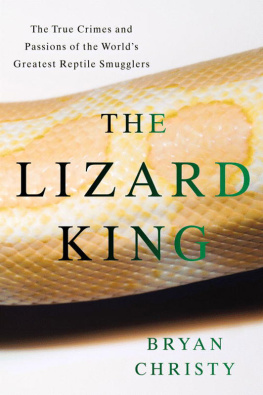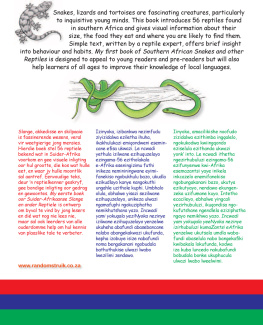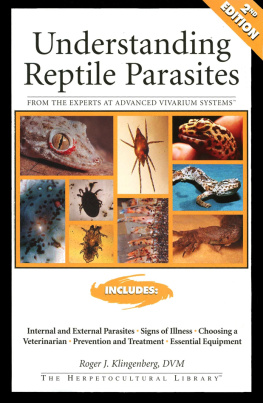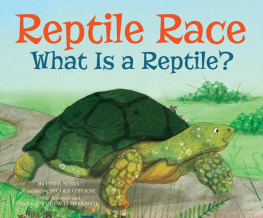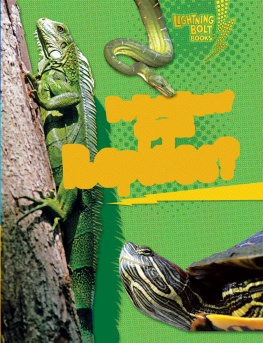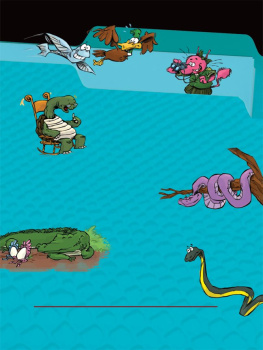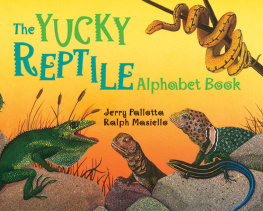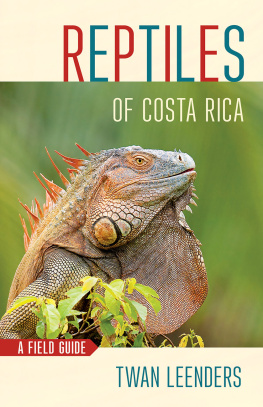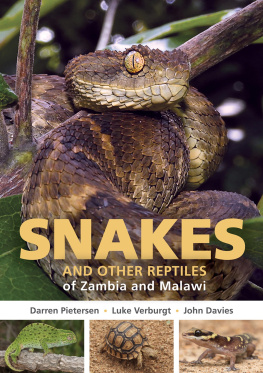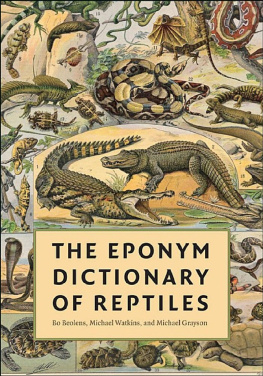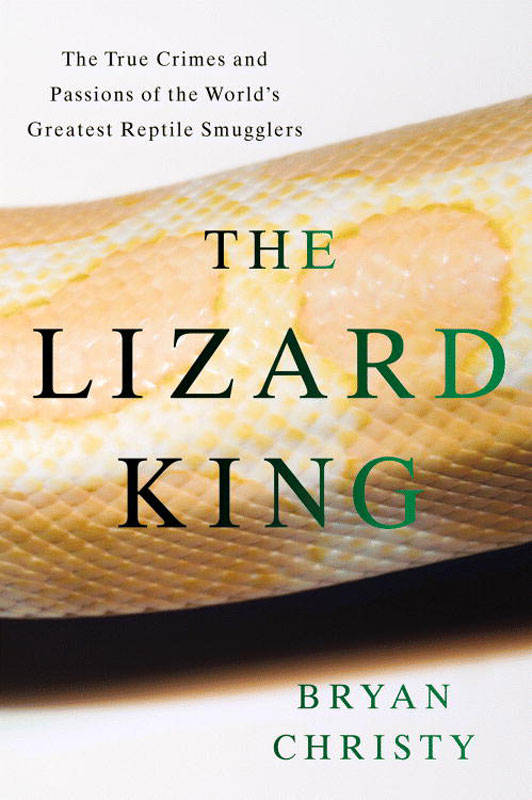Copyright 2008 by Bryan Christy
All rights reserved. Except as permitted under the U.S. Copyright Act of 1976, no part of this publication may be reproduced, distributed, or transmitted in any form or by any means, or stored in a database or retrieval system, without the prior written permission of the publisher.
Twelve
Hachette Book Group USA
237 Park Avenue
New York, NY 10017
Visit our Web site at www.HachetteBookGroupUSA.com.
First eBook Edition: August 2008
ISBN: 978-0-446-53790-2
For my mother and father
They are not brethren, they are not underlings; they are other nations caught with ourselves in the net of life and time, fellow prisoners of the splendour and travail of the earth.
Henry Beston, The Outermost House: A Year of Life on the Great Beach of Cape Cod
H e packed the baby tortoises like diamonds, one to a pocket, and stapled each pocket closed. When he had ten pockets filled, he lifted the completed length of cloth and laid it with the others inside a hard-sided suitcase whose walls he had lined with thick foam. It was to be his last trip of the season, and he wanted to make the most of it. He repeated the process until all of the tortoises were packed. The snakes he tied inside pillowcases, and when he was done, he stuffed his laundry into the suitcase, including a little pink hairbrush he was bringing home to Miami as a gift.
Time is money. If you counted the time, which is to say if you calculated the odds that an overworked customs inspector would catch you and multiplied it by the prison time you would do if you were caught, reptiles were a good bet. First, nobody got caught; and then even if you did, the penalty was not jail, it was a parking ticket. Snakes? Find a jury of twelve men and women in any state in the union that would sentence a man to prison for smuggling snakes. It was not going to happen. You didnt go to prison for what he carried in his suitcase; you killed it with a shovel.
He had tried birds, but birds died. Reptiles were as durable and easy to pack as precious stones, without the up-front costs. And the profit margins were as good as cocaine without the machine guns or the felony drug charges. Best of all, you werent going up against the DEA or the FBI, you were going up against the U.S. Fish and Wildlife Service. Really, you would be stupid not to do it.
Not that he considered all of this himself. He was smart, sure, but this was not his country. He was an Argentine citizen with an American green card. The one who thought about all of this and no doubt a lot more owned a company called Strictly Reptiles, the largest reptile import-export company in the United States. He did not interact with the owner directly, but every decent reptile smuggler in the country knew the name Mike Van Nostrand.
Tomas Medina, a computer-parts salesman, stepped out of American Airlines Flight 900 on March 25, 1992, wearing a gray business suit and a black necktie and passed through U.S. immigration. It had been his twenty-seventh birthday when hed boarded the plane in Buenos Aires, but now as he waited for his suitcase to arrive, it was a new day and barely half past five on an overcast morning.
He heaved his suitcase off the conveyer and began wheeling it toward customs. Traveling regularly between Buenos Aires and Miami, Medina had become little more than a computer part himself, delivering and receiving instructions along a set pathway. Everyone at American Airlines knew his face, and so did many customs officers.
One of them was waving to him. It took a moment for the errant impulse to reach his brain, a moment more for his brain to process the information. Behind his eyeglasses, Medina blinked. The official was not waving. He was pointing, ordering him toward a line marked plant protection and quarantine.
There was nothing he could do. He obeyed. He lifted his suitcase onto an X-ray machines conveyer belt and watched his future disappear.
Department of Agriculture inspector Lee Cross was a burly man whod seen a good deal of smuggling and heard a good number of excuses. He studied the image on his X-ray screen; what he saw were two rows of unfamiliar dark objects. He asked Medina what they were. Medina joined Cross in looking at the X-ray screen. He saw what appeared to be two rows of black ravioli. Turtles, he said.
The inspector looked again at the X-ray image, rubbing his beard. Ceramic turtles? he asked.
Medina said they were not ceramic.
Cross assumed Medina was bringing in Argentine handicrafts that were either undeclared or undervalued on his customs declaration form. It was hard to tell from the X-ray, but the way the items were layered, it looked like there might be quite a few of them.
Wooden turtles? he asked.
Again Medina said no.
Well, sir, Cross asked, what sort of turtles are we talking about?
In 1981, Bob Clark, a frustrated clothing-store manager in Oklahoma City, thumbed his barbershops National Geographic while he waited for a haircut. Married, earning just $14,000 a year, an underutilized masters degree in herpetology hanging limp around his neck, Clark began reading an expos on international wildlife crime entitled Wild Cargo: The Business of Smuggling Animals. The investigative report told the story of poachers after black rhinoceroses for their horns in Kenya, elephant ivory carvers in Hong Kong, Indian tiger hunters, and more. It also depicted the luxury end of the wildlife trade, much of it legal, including bear-paw soup in Macao, amber Japanese wedding combs made of sea turtles shells, and lizard-skin boots for sale at Saks Fifth Avenue in New York.
When Clark turned the page, he gasped. A full-page photograph showed a pudgy Thai man dressed in a stylish brown shirt; he was holding a cordless telephone and grinning. The mans name was Mr. Dang. Around Mr. Dangs neck was looped a young Burmese python, one of the most common snake species in the U.S. pet trade. Dang was smiling because instead of the brown-and-copper coloring that marks a normal Burmese python, Dangs snake was pale yellow and whitean albino.
Clark began to tremble.
According to a caption beside the photograph, Wildlife tycoon Mr. Dang of Bangkok annually sells nearly a million dollars worth of pets from Asia. This rare albino python could bring $20,000 in Germany, Japan, or the United States, his major outlets.
Clark was not sure Dangs figure was correct, but if it was even close Dang had grossly underestimated the potential of his reptile. Because Bob Clark, like relatively few others in the world at that time, knew how to make that python breed.
Clark was sandy-haired, fit, and as midwestern as corn. Hed gotten his masters at the University of Kansas; if there were an Ivy League for studying reptiles, the University of Kansas would have the rank of Harvard or Yale. His first thought at seeing the photograph was plain as milk: I want that more than anything. In the weeks to come, it was all he thought about, all he talked about. He had the soft, joyous voice of a man touched by God. He drove his wife crazy going on about that photograph, but eventually he located the snake. It was no longer in Thailand. It was on the price list of a Florida reptile dealer named Tom Crutchfield, who had also read the National Geographic article.
By the time Crutchfield had figured out where the snake was, it and two others had been stolen from Dang and shipped to New York. The Thai government would be alerted and would attempt to retrieve the pythons without success. Ignorant of these details, Crutchfield remortgaged his house and bought all three snakes from a New York reptile dealer for $21,000. Then he boarded an airplane to go meet Dang in person. Dang dealt in albinos of many species, including wallabies, macaques, turtles, and cobras. Crutchfields objective was to lock up the global market in albino Burmese pythons, and he did.

